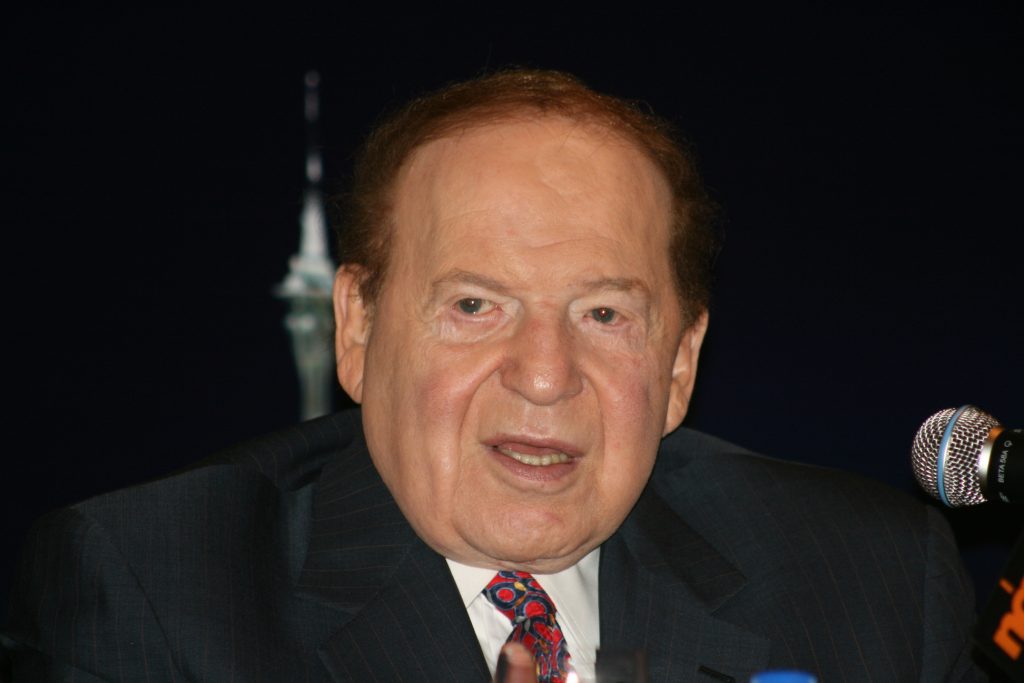
Built a fortune from scratch
Sheldon Adelson, the founder of Las Vegas Sands Corporation and online poker’s top villain, died Monday at the age of 87. Adelson had been battling non-Hodgkin’s lymphoma, a form of blood cancer, since 2018. Just a few days ago, Las Vegas Sands announced that he was taking a leave of absence from his role as CEO for treatment. Both Sands and Adelson’s wife, Dr. Miriam Adelson, confirmed the news on Tuesday morning.
Regardless of one’s views of him, Adelson’s rise to being one of the richest people in the world is quite impressive. He was not born into money. He did not receive a small loan of a million dollars from his father. Rather, Adelson began his business career with by borrowing $200 from his uncle when he was 12 so he could buy the rights to sell newspapers outside of Filene’s Basement in Boston. Four years later, he started a vending machine business with a $10,000 loan from that same uncle.
Fast forward to 1979, after he had already started dozens of businesses, when he and his partners founded the giant computer industry convention COMDEX. They sold it in 1995 for $862 million; Adelson’s take was over $500 million.
He and his partners bought the Sands Hotel and Casino in Las Vegas in 1988 and tore it down in the 1990’s, building The Venetian in its place. Though that property is probably the one most people know best in the Las Vegas Sands portfolio, most of the company’s money comes from properties in Singapore and Macau.
Online poker’s public enemy number one
Which is one reason why Adelson’s crusade against online gambling in the United States was so strange. For the better part of the last decade of his life, Adelson fought tooth and nail to try to see online poker and online gambling as a whole banned in the US, saying he would spend “whatever it takes” to make it so.
He claimed he was trying to protect children and vulnerable adults, but his real fear was that online gambling could negatively impact his land-based casinos in the country. As smart as he was, he never realized that online gambling allowed people to get used to playing in a comfortable environment, which they often made them want to visit a casino to give it a shot live.
Swung his political club
Adelson founded the Coalition to Stop Internet Gambling (CSIG) in 2014, using it to lobby lawmakers to take up his cause to ban online poker. The biggest Republican political donor since about 2012, he epitomized “crony capitalism” when his lobbyists crafted the Restoration of America’s Wire Act (RAWA) in 2014, getting Rep. Jason Chaffetz and Sen. Lindsey Graham to introduce into their respective chambers of Congress.
RAWA’s goal was to update the Federal Wire Act of 1961 to make all online gambling illegal. Its text only restricts interstate sports betting over telecommunications wires, but the Department of Justice interpreted it to apply to all online gambling (the online part makes sense, as those are effectively telecommunications lines). In late 2011, the DOJ’s Office of Legal Counsel (OLC) reinterpreted the Wire Act, confirming that it does only apply to sports betting, thus opening the door for online poker.
In early 2019, however, the OLC, now part of the Trump Administration, reversed its decision, saying that the Wire Act makes all online gambling illegal. The Wall Street Journal reported that the unexpected move was kickstarted by Adelson, whose lobbyists told the DOJ that the Wire Act interpretation was wrong. The DOJ then sent it to the OLC to review (wink wink).























